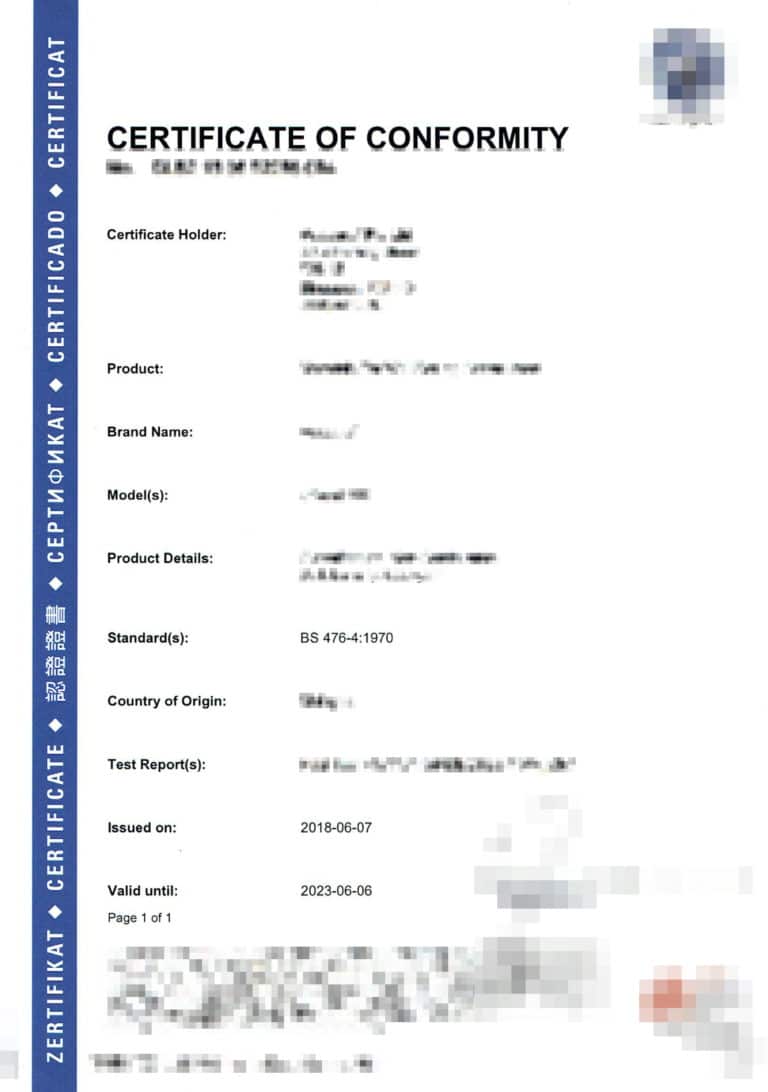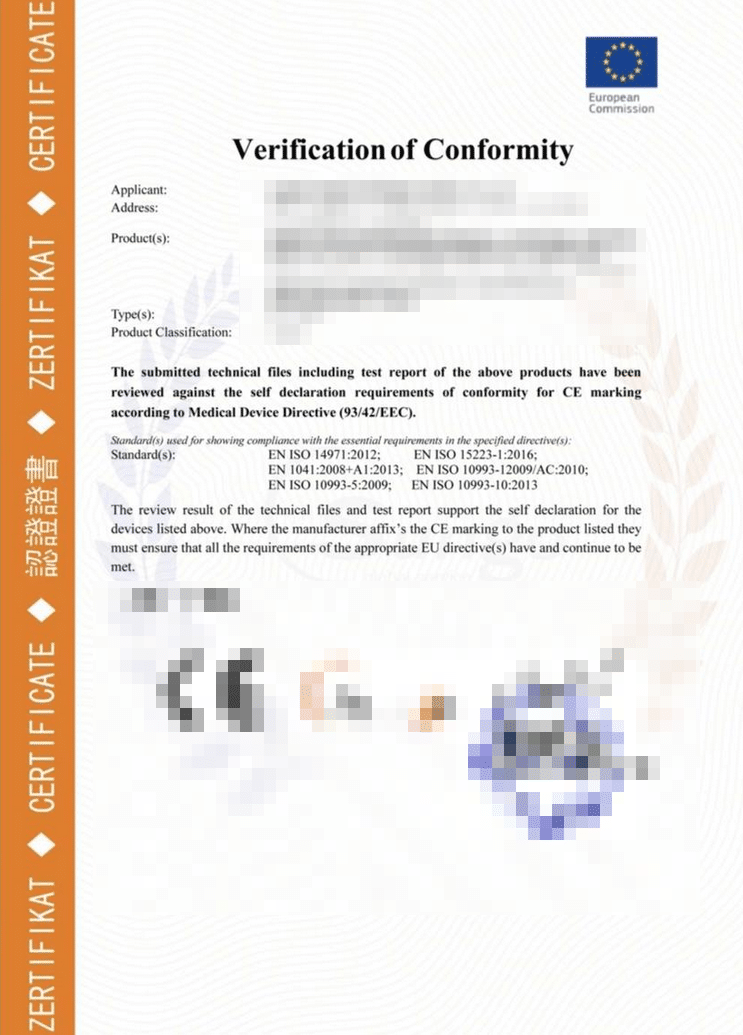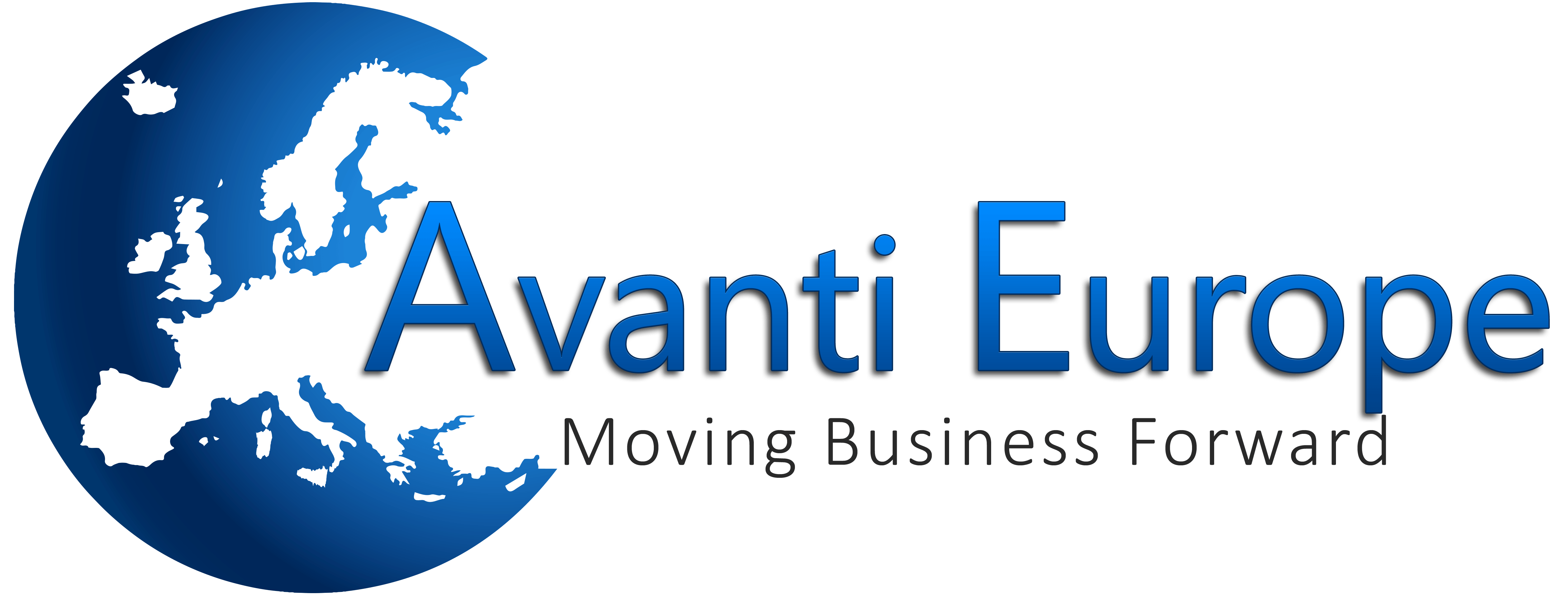How to identify a original Certification of Compliance

The EC Certification of Conformity (CoC) is the formal certification of a Notified Body (NB) in the EU to declare the approval of a medical device or In-vitro diagnostic. With the publication of the CoC, the NB allows the manufacturer to affix the CE-mark onto the product and label of the product and the product is cleared for sales in the EU.
As this CoC is the permit for selling the poduct in the EU, CoC’s are very often subject to falsification, especially in the COVID-19 crisis.
The format
A CoC is established only by a NB and the format is defined by the NB. With this, it becomes obvious why so many different layouts and presentations of CoC’s are out there but makes it harder to distinguish a compliant CoC from others.
The confusion
There is some confusion around what can and should be certified.
A Notified Body (NB) can certify the conformance to the regulation for medical devices and in-vitro diagnostics. This is true for all medical devices, except risk class I medical devices. For risk class I medical devices, a manufacturer can request a voluntary attestation of confomity (AoC) from its NB.
So, there are two types of certificates out there:
- Certificate of Compliance
- Attestation of Compliance
Original CoC

Falsified CoC

The sub-types of CoC's
The Medical Device Regulation MDR 2017/745 in Annex IX defines the technical documentation assessment and in Annex X a type-examination. Both examinations will subsequently lead, in a successful case, to the award of a certificate.
What a CoC contains in minimum
- Issuer of the CoC, which needs to be a Notified Body approved for medical device clearance of the specific Risk Class
- Company name (or registered trade name or registered trade mark)
- Conclusion of technical documentation assessment or type-examination
- Validity and conditions of validity of certificate
- Data to identify approved design
- If appropriate, intended use description of the medical device
How to spot falsified Coc's
Falsified CoC’s can be spotted in multiple ways and most certainly, when the above points are not considered on the certificate. The most commonly seen falsified data on a CoC are:
- Typos
- Certificate contains other words than “Certificate of Conformity”
- Notified Body is inexistent or not on the NANDO-list for the certified type of medical device
- Missing product classification according to the Annexes of the Regulation
- Certificates with a longer period of validity than 5 years
- Missing identification of the medical device or a general name, apart from a trade name, for the device
- Missing Standards upon which the device is developed
How avanti europe can help
The Experts of Avanti Europe support you in sourcing medical devices as well as building a robust and resilient supply chain. Get in contact and learn how we could help in your specific case.
